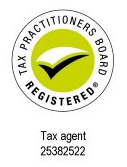When it comes to planning for the future, creating a trust can be a wise decision for many people. Trusts can provide a range of benefits, including asset protection and tax savings, and they can be tailored to suit your specific needs and circumstances. In this blog post, we’ll explore the benefits of setting up a trust under Australian law.
What is a Trust?
A trust is a legal structure that allows you to hold and manage assets for the benefit of others. When you set up a trust, you transfer ownership of assets to the trust, which is managed by a trustee. The trustee has a legal obligation to manage the assets in the trust in the best interests of the beneficiaries, who are the people who will ultimately receive the assets.
The Benefits of Setting Up a Trust in Australia
There are a number of benefits to setting up a trust in Australia. Here are some of the key advantages:
Asset Protection
One of the main benefits of setting up a trust is that it can provide asset protection. This means that assets held in the trust are protected from creditors and other third parties. If you’re concerned about protecting your assets from potential legal or financial risks, setting up a trust can be a good way to safeguard your wealth particularly if you are running a business.
Tax Savings
Another key benefit of setting up a trust in Australia is that it can provide tax savings. For example, if you set up a discretionary trust, you can distribute income to beneficiaries in a way that minimises tax liabilities. This can be particularly beneficial if you have beneficiaries who are on a lower tax rate than you are.
Estate Planning
Setting up a trust can also be a useful estate planning tool. By transferring assets to a trust, you can ensure that they are distributed according to your wishes after you pass away. This can help to avoid disputes and ensure that your assets are used in the way that you intended because trusts do not form a part of your normal estate.
Flexibility
Trusts can be tailored to suit your specific needs and circumstances. For example, you can set up a trust that provides for the ongoing care and support of a family member with a disability, or a trust that will provide ongoing financial support for your children or grandchildren. Trusts can also be used to hold assets such as property or shares, providing flexibility in how you manage your assets.
Types of Trusts in Australia
There are several different types of trusts that can be set up under Australian law. Here are some of the most common:
Discretionary Trusts
A discretionary trust, also known as a family trust, allows the trustee to distribute income and assets to beneficiaries at their discretion. This can be an effective way to minimise tax liabilities and provide flexibility in how income is distributed.
Unit Trusts
A unit trust is a type of trust where the beneficiaries hold units in the trust, rather than the assets themselves. The trustee manages the assets and distributes income to beneficiaries based on their unit holding.
Testamentary Trusts
A testamentary trust is a trust that is set up under a will. This can be a useful way to provide ongoing financial support for beneficiaries after you pass away.
Hybrid Trusts
A hybrid trust is a combination of a discretionary trust and a unit trust. This can provide greater flexibility in how the trust is managed and how income is distributed.
How to Set Up a Trust in Australia
Setting up a trust in Australia can be a complex process, and it’s important to seek professional advice to ensure that you set up the right type of trust for your needs. Here are some of the key steps involved:
- Speak to your accountant about the type of trust that will suit your needs best.
- Choose a trustee to manage the trust with care. Again seek advice from your accountant or lawyer first and carefully consider succession planning.
- Draft the trust deed, which sets out the terms and conditions of the trust.
- Transfer assets to the trust.
- Obtain a tax file number for the trust with the Australian Taxation Office (ATO).
Conclusion
Setting up a trust can be a smart decision for many people. Whether you’re looking to protect your assets, minimise tax liabilities, or provide ongoing financial support for loved ones, a trust can provide a range of benefits. If you’re considering setting up a trust, it’s important to seek professional advice to ensure that you choose the right type of trust for your needs and that you set it up correctly under Australian law.
If you need help setting up the best trust structure get in touch with Sumz Plus Business Services.









